Generation Game
Growing up with Championship Manager
Of all the cruelties inflicted on man by his inventions, this one stands unmatched. After 90 minutes of relentless attacking play and thoughtful substitutions, justice is finally done as the text bar displays: GOAL FOR ARSENAL!! The meals skipped, the sleep foregone, the real life relationships left to wither on the vine. All worth it for this moment of glorious vindication.
And then, the betrayal. Goal disallowed for offside. Or a foul in the build-up. Or whatever Mike Riley has dreamed up in his twisted imagination. I think this accounts for why the introduction of Video Assistant Referee (VAR) to the Premier League failed to move millennials in quite the way it did older generations. We were trained from a young age not to take anything for granted.
Kick off
It is difficult, looking back, to separate my childhood from the Championship Manager series, the management simulation game developed by Sports Interactive. It would be like describing the plot of The Lion King without mentioning Mufasa’s death. The obsession began in the spring of 1999, when Championship Manager 3 was released.
At 10 years old, football was already — by far — the most important thing in our lives. Getting home from school meant completing your homework as soon as possible before loading up the game (praying the disk wasn’t too scratched to respond) and buying players your contact from Mr Pellow’s geography class swore would guarantee you 60 goals a season.
I was only interested in managing Arsenal at this stage. With an ageing side and limited budget, I could just about afford to buy Bixente Lizarazu from Bayern Munich and Robbie Keane from Wolves. Tactics were virtually non-existent at this point, mirroring the actual Premier League, where the English players still drank while the few foreign ones smoked. Completing a season would only take three or four hours, although with a database of 25,000 players and staff, gameplay was often painfully slow, as my grey desktop computer groaned away in the background.
I don’t recall much about the next iteration, Championship Manager 99/00, except for the fact that you could pick up Inter Milan and Argentina legend Javier Zanetti for a few million pounds. But the 00/01 version was a game changer, specifically managing Real Madrid. No matter how many world class defenders I bought, no scoreline was safe. The team could be 4-0 up against Real Zaragoza with ten minutes remaining and lose 5-4.
Wonderkids
Rumours would spread around school of a list. On it was a series of names no one had heard of, usually misspelled, but each with the potential to take a mid-table side to the precipice of Champions League nirvana. These were ‘wonderkids’. Young players with bags of potential who could be picked up for a song.
For Championship Manager 01/02, widely considered the greatest edition of the series, there were names such as Cherno Samba, Tonton Zola Moukoko, Maxim Tsigalko and Tó Madeira. The streets won’t forget. Throw in experienced old heads available on a free transfer like Taribo West and Josep Guardiola (whatever happened to him?) and perhaps a takeaway pizza picked up by mom and Saturday nights were all set. Ideally, Match of the Day would be on in the background — we were second screening before it changed streaming.
There was a beautiful certainty to it all: that somewhere in the database was the key to greatness, if only you looked hard enough. The biggest stumbling block tended to be that Islington Council would repeatedly reject my application to expand Highbury Stadium. England’s planning system produced a generation of YIMBYs independent of any political movement.
As the years went on, the game grew more in-depth and intense, which I suppose suited us as we grew older. Seasons would take longer to complete, especially if you took things seriously and wanted a proper scouting network, bespoke training sessions and so on.
Briefly, if I haven’t already lost you, we need to mention the Championship/Football Manager divorce. In 2003, Sports Interactive split with the publisher Eidos. The former kept the game’s code, database and match engine while the latter got the name and interface. The two went head-to-head and… it wasn’t even close. Football Manager won by a landslide.
The story, at least for me, ends with Football Manager 2007. But what an ending.
My world-beating West Bromwich Albion side comprising Gareth Bale (£1m from Southampton), Giles Barnes (£3m from Derby) and Stefano Okaka (£5m from Roma) represented a culmination of all my years’ work. This is the version we were all still playing at university.
Subsequent editions were released with ever larger databases, but it started to feel a lot more like… work, or at least yet another unpaid internship. Either way, it was more demanding than my six contact hours a week.
Life is a tough crowd
I’ve not booted up the game for more than a decade. Not, I stress, because of any personal or professional development on my part, but because the CDs don’t work on modern computers and I’m too confused to download random bits of software online to try to make it work. But I’m fairly certain that having played it for literally thousands of hours, it rewired my brain in a way that writing leader articles did in my early thirties1.
There were the life lessons. An acknowledgement that budgeting and resource allocation is important, but man management is everything. If Thierry Henry decides he wants a week off in the middle of November, let him have it. And to never act in haste — when I was 11, I lost at home to a team bottom of the table and disposed of all my best players in a fit of rage fire sale. After the red mist lifted, I realised what I’d done and tears were shed.
At its best, the game was pure escapism. But if things ever went wrong, there was always the nuclear option: hit the save button before the big match — and try again. It was never quite as sweet that way, but as life grew ever more complex and open-world, it was nice knowing you still had a safety net.
You have to write “must”, “should” and “ought to” a lot.



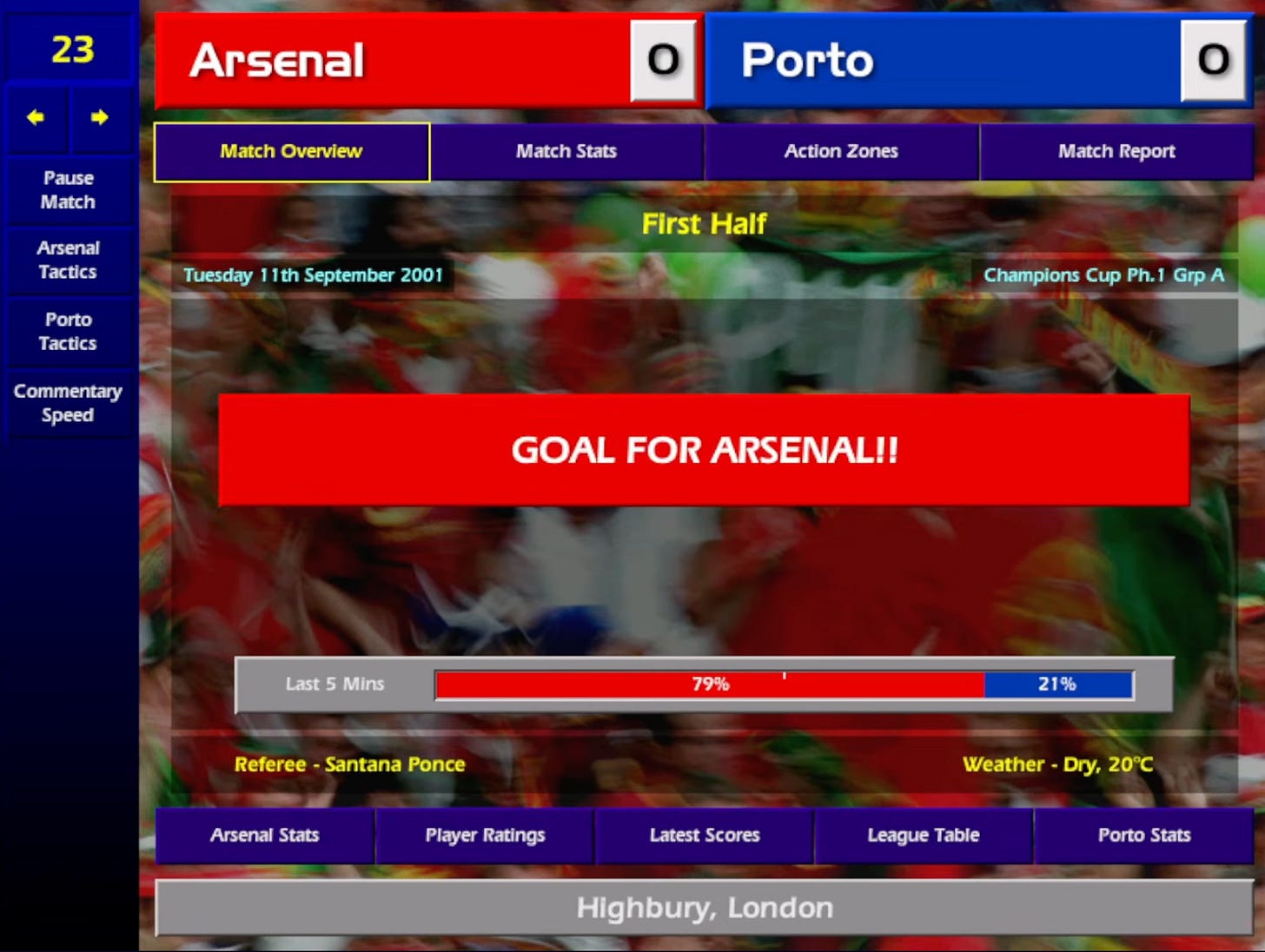
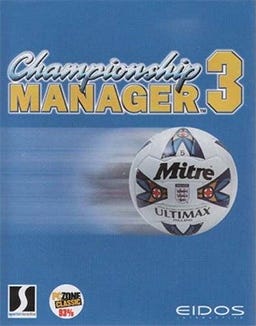
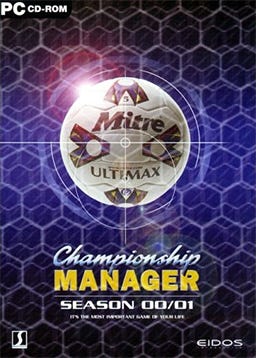

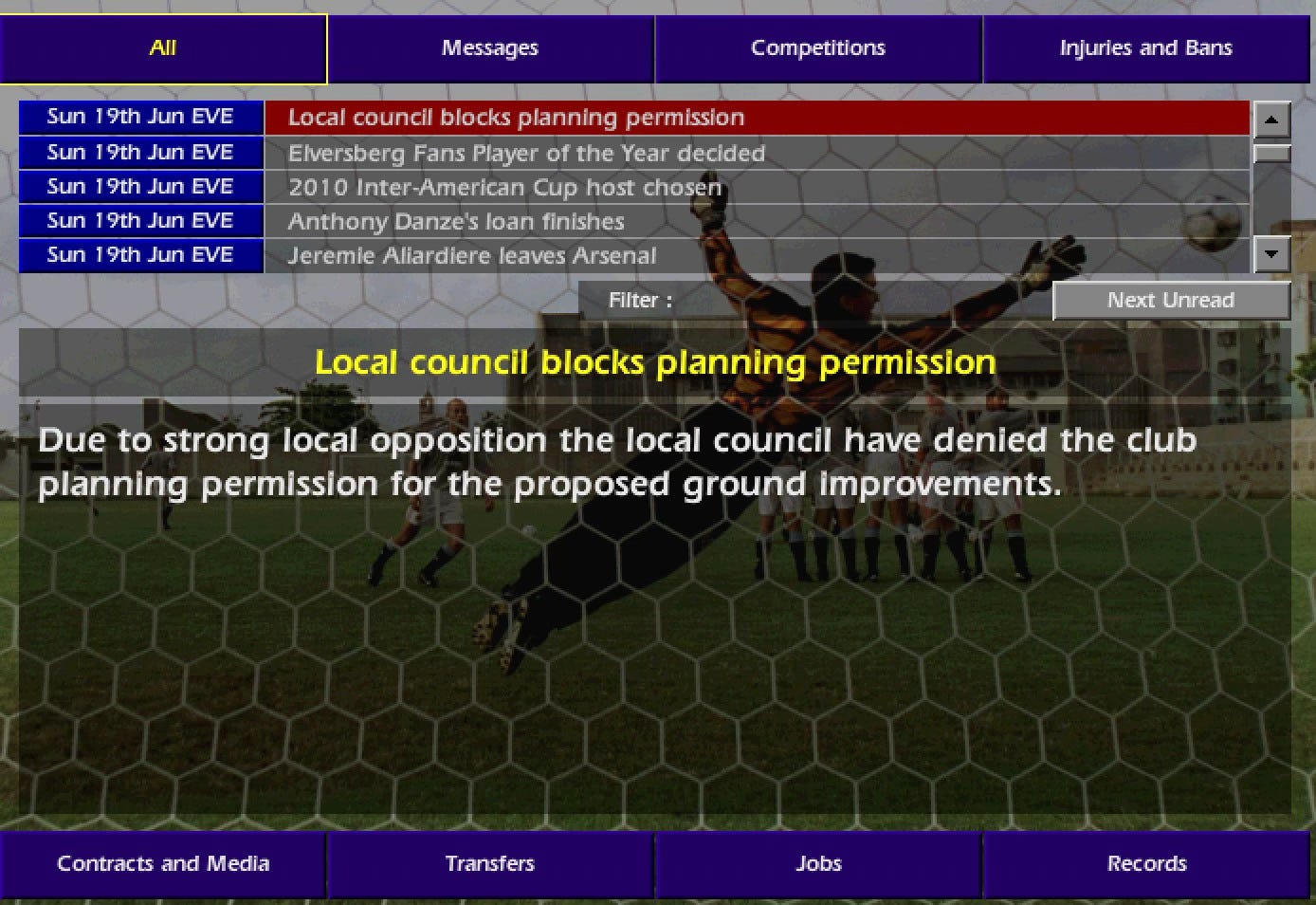
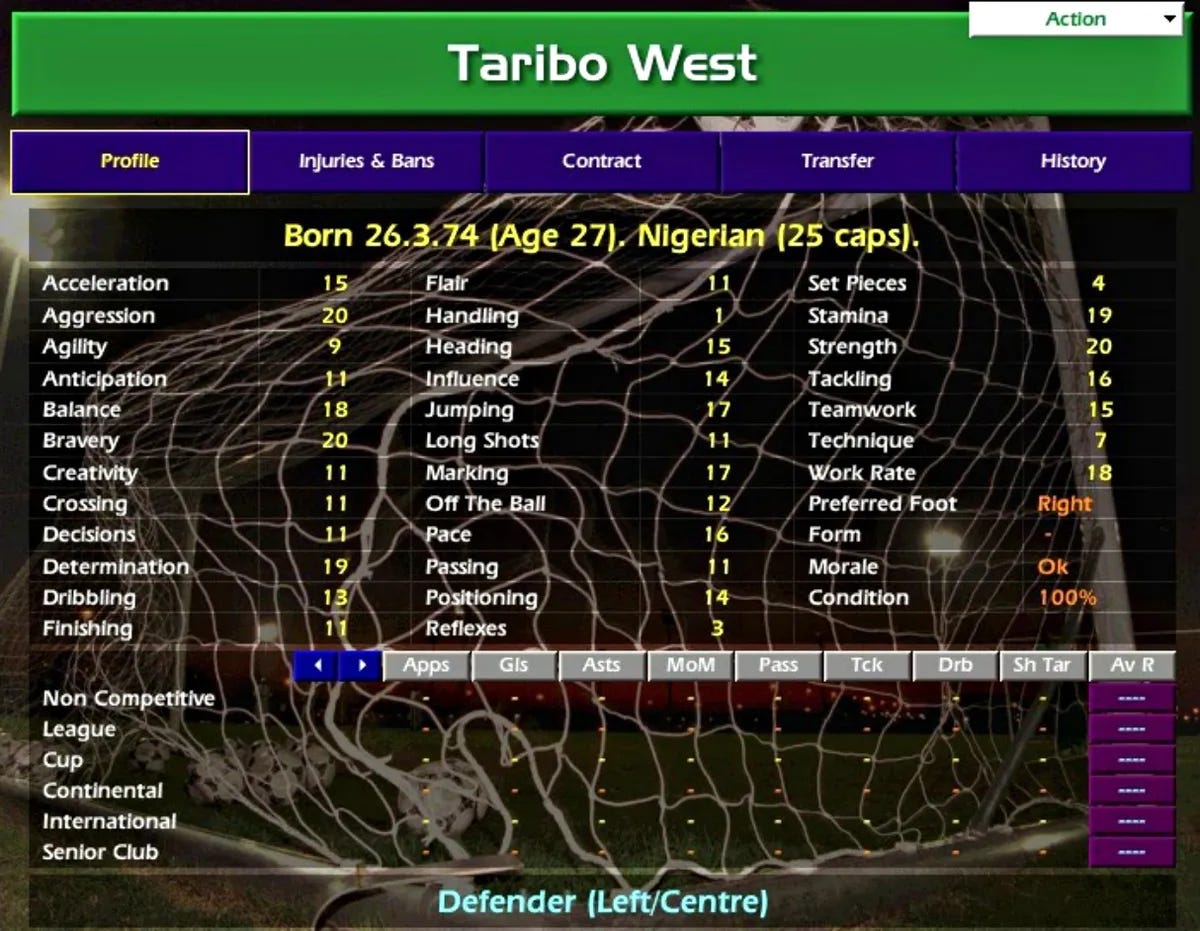
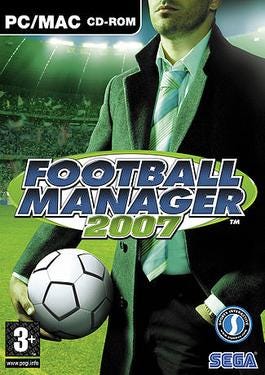
Not very interesting to those who've never played CM (or indeed, any other video game) in their lives. Perhaps I'm the wrong demographic to be a paid subscriber?